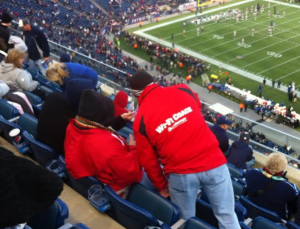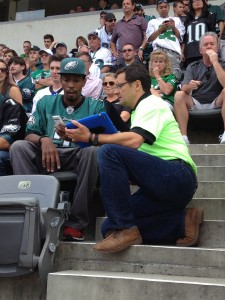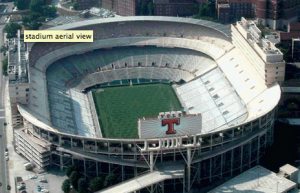Are you ready for some streaming football? In case you won’t be near a TV for either of Sunday’s championship games, you still may have a chance to watch the games live on a PC, a tablet or a smartphone. Here are the details:
If you’re a customer of a participating provider for Fox Sports Go, you can watch Sunday’s NFC championship game between the San Francisco 49ers and the Seattle Seahawks on the Web or on an Apple iPad using the Fox Sports Go website or mobile app. The Fox Sports Go website address is foxsportsgo.com, and the list of participating providers includes AT&T U-Verse, Comcast Xfinity, Suddenlink, Optimum, Midcontinent Communications, and Wow!. Coverage starts with the FOX NFL Sunday pregame show at 6 p.m. ET. Joe Buck, Troy Aikman, Pam Oliver, and Erin Andrews will call the game at 6:30 p.m. If you’re like me, the mute button on Buck/Aikman comes into play at about 6:35.
CBS will also live-stream its coverage of the AFC championship game from Denver, starting at 3 p.m. ET on Sunday. The games can be watched online at CBSSports.com’s NFL page, or via the CBSSports app, which shows the games via a web page. I did see a little disclaimer that says live streaming is only available via iOS mobile devices.
If you are a Verizon Wireless customer and want to watch the games on your 4G LTE smartphone, you can sign up for Verizon’s NFL Mobile app and its live NFL service, which costs $5 a month extra to whatever cell plan you have. NFL Mobile customers will be able to see live streaming action from both championship games as well as the Super Bowl. Though it suffered glitches earlier this season, Verizon’s NFL Mobile app has been rock-solid for me, with lots of air time during my daughter’s Sunday afternoon music lessons. Don’t get caught without football this weekend, these games are possible classics you don’t want to miss.









